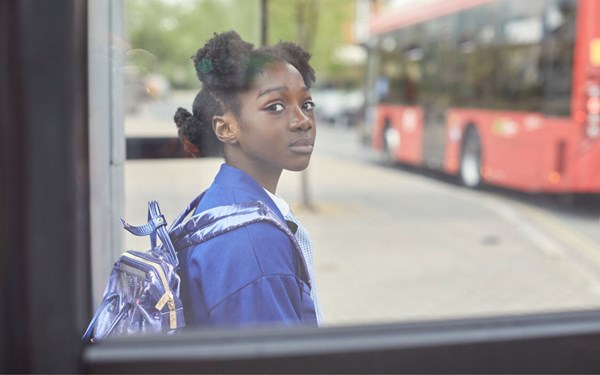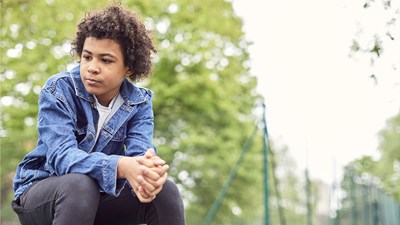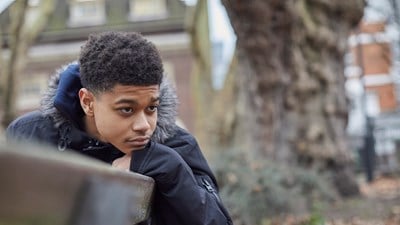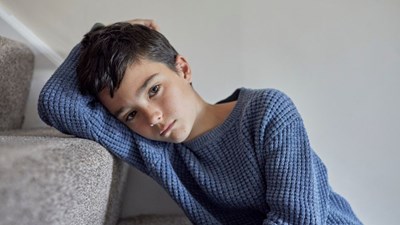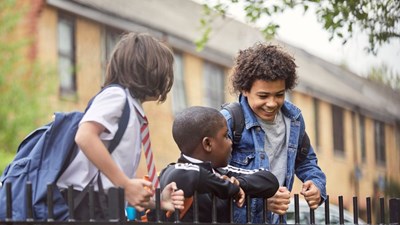On this page
- What is child sexual exploitation (CSE)?
- Types of child sexual exploitation
- Signs of child sexual exploitation
- If a child reveals abuse
- Effects of child sexual exploitation
- Report child sexual exploitation
- Support for parents, children and young people
- Preventing child sexual exploitation
- Help if you're worried about your behaviour
Worried about a child?
Contact our Helpline by calling 0808 800 5000 or emailing [email protected].
What is child sexual exploitation?
Child sexual exploitation (CSE) is a type of sexual abuse. It happens when a child or young person is coerced, manipulated or deceived into sexual activity in exchange for things that they may need or want like gifts, drugs, money, status and affection. Children and young people are often tricked into believing they're in a loving and consensual relationship so the sexual activity may appear consensual. This is called grooming and is a type of abuse. They may trust their abuser and not understand that they're being abused. CSE does not always involve physical contact, and can also occur through the use of technology.
Children and young people can be trafficked into or within the UK for sexual exploitation. They're moved around the country and abused by being forced to take part in sexual activities, often with more than one person. Young people in gangs can also be sexually exploited.
Sometimes abusers use violence and intimidation to frighten or force a child or young person, making them feel as if they've no choice. They may lend them large sums of money they know can't be repaid or use financial abuse or blackmail to control them.
Anybody can be a perpetrator of CSE, no matter their age, gender or race. The relationship could be framed or viewed as friendship, someone to look up to or romantic. Children and young people who are exploited may also be made to 'find' or coerce others to join groups.
It's important to recognise that although the age of consent is 16 years old, children and young people over 16 can be exploited. Child sexual exploitation is a very complex form of abuse. It can be difficult for parents and carers to understand and hard for the young person to acknowledge that they are being exploited.
Types of child sexual exploitation
CSE can happen in person or online. An abuser will gain a child's trust or control them through violence or blackmail before moving onto sexually abusing them. This can happen in a short period of time.
When a child is sexually exploited online they might be persuaded or forced to:
- send or post sexually explicit images of themselves
- film or stream sexual activities
- have sexual conversations.
Once an abuser has images, video or copies of conversations, they might use threats and blackmail to force a young person to take part in other sexual activity. They may also share the images and videos with others or circulate them online.
Gangs use sexual exploitation:
- to exert power and control
- for initiation
- to use sexual violence as a weapon.
Children or young people might be invited to parties or gatherings with others their own age or adults and given drugs and alcohol. They may be assaulted and sexually abused by one person or multiple perpetrators. The sexual assaults and abuse can be violent, humiliating and degrading. It's important to remember an intoxicated person cannot give consent to sexual activity.
Signs of child sexual exploitation
Sexual exploitation can be difficult to spot and sometimes mistaken for "normal" teenage behaviour. Knowing the signs can help protect children and help them when they've no one else to turn to.
- Unhealthy or inappropriate sexual behaviour.
- Being frightened of some people, places or situations.
- Being secretive.
- Sharp changes in mood or character.
- A sudden change in their family relationships/dynamics.
- Having money or things they can't or won't explain, such as hotel key cards or unexplained gifts.
- Physical signs of abuse, like bruises or bleeding in their genital or anal area.
- Sudden change in physical appearance including clothes and hygiene levels.
- Alcohol or drug misuse.
- Sexually transmitted infections.
- A sudden and urgent request to go onto contraception or to obtain the ‘morning after pill’.
- Pregnancy.
- Having an older person they view as their boyfriend or girlfriend.
- Staying out late or overnight.
- Having a new group of friends.
- Missing from home or care, or stopping going to school or college.
- Hanging out with older people, other vulnerable people or in antisocial groups.
- Involved in a gang.
- Involved in criminal activities like selling drugs or shoplifting.
They may not know where they are, because they've been moved around the country, and seem frightened, confused or angry. They may feel unable to reach out for support or not know how to start the conversation.
A child might know they're being sexually exploited. They might be worried or confused and less likely to speak to an adult they trust. If you're worried about a child and want to talk to them, we have advice on having difficult conversations.
Worried about a child?
You can contact the NSPCC Helpline by calling 0808 800 5000, emailing [email protected] or completing our report abuse online form.
If a child reveals abuse
If a child talks to you about sexual exploitation it's important to:
- listen carefully to what they're saying
- see what immediate help they may need, such as medical attention
- let them know they've done the right thing by telling you
- tell them it's not their fault
- say you'll take them seriously
- don't confront the alleged abuser
- explain what you'll do next
- report what the child has told you as soon as possible.
If you suspect child sexual exploitation is happening, it's important you seek support. There are some things you can do to help your child, like gathering any information that may be useful in an investigation such as names, ages, social media handles, telephone numbers or vehicle reg numbers.
Effects of child sexual exploitation
Both sexual exploitation in person and online can have long-term effects on a child or young person. They may:
- struggle with trust and be fearful of forming new relationships
- become isolated from family and friends
- have struggles understanding healthy relationships and boundaries
- fail exams or drop out of education
- become pregnant at a young age
- experience unemployment
- have mental health problems
- self-harm or attempt suicide
- misuse alcohol and drugs
- take part in criminal behaviour
- experience homelessness.
Our services can support children and young people who have experienced sexual exploitation to help them get support and receive the care they need.
How The Lighthouse helps
Getting the right support when a child has been abused is so important. But after sexual abuse, children and their families often struggle to navigate health and social care, therapeutic services, police, and often, the criminal justice process by themselves.
That’s why we’re proud to have helped launch The Lighthouse, the UK's first Child House. It's the first centre in the UK to bring multiple agencies together under one roof to provide a child-friendly, multidisciplinary service for victims and survivors of child sexual abuse and exploitation. Based in Camden, it serves the London boroughs of Barnet, Camden, Enfield, Haringey and Islington.
The Lighthouse is delivered by University College London Hospital NHS Foundation Trust (UCLH) in partnership with the NSPCC and the Metropolitan Police. As part of The Lighthouse’s therapeutic services, the NSPCC offers our Letting the Future In intervention.
"The Lighthouse has been a little bit of refuge."
Parent in London
When a child has experienced sexual abuse, they and their family are often left to navigate finding the right support for their child alone. From health care professionals, social workers, therapists and the police – this frequently means the child has to re-tell and re-live their experience with each agency or professional, risking being re-traumatised by the process.
The Lighthouse is based on the international Child House (Barnahus) model, established in Reykjavik in 1998. This model is child-centred, allowing medical and sexual health professionals, counsellors, therapists, and the police to work together under one roof – guiding children, young people and their families through their journey of recovery, helping them access the support they need at every step, including the court process.
"I only have to tell the story once."
Child using The Lighthouse in London
In London, where The Lighthouse is based, research has identified a “significant unmet need” for emotional and health support for children who have experienced sexual abuse1. Those who do sometimes have to wait months to receive therapy and the support they need. One study found that 8 in 10 adolescents who experienced sexual abuse had mental health problems 4-5 months after the assault2. That is why it is so important children get the help they need when they need it.
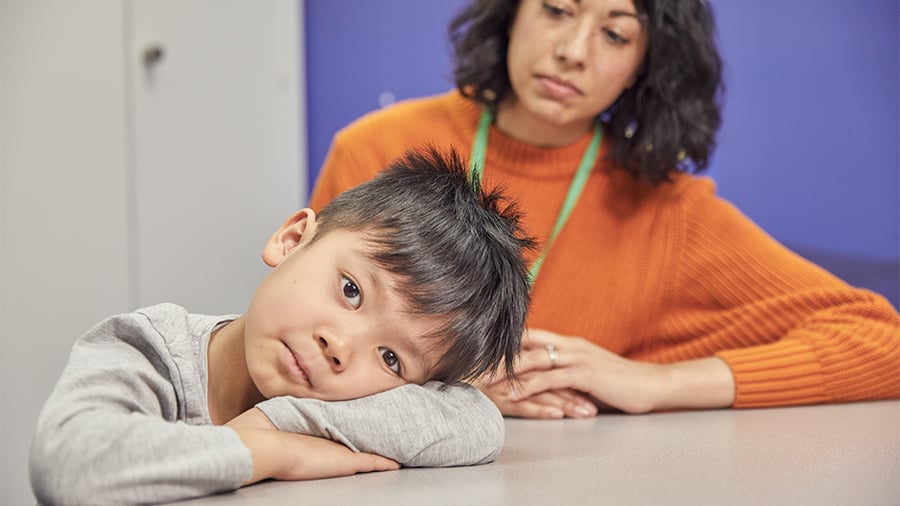
In 2019/20, The Lighthouse received 321 referrals, meaning approximately 1 in 2 children in North Central London who reported sexual offences were referred there for support.3 The Lighthouse team were able to accept 258 of those referrals, supporting children and families through this difficult time.
The team regularly ask children and their parents what they like about the service centre. Children felt that at The Lighthouse:
- their views were taken seriously
- they were listened to
- the practitioners were easy to talk to
- The Lighthouse teams were working together to support them.
"I like the way I can talk and be advised and listened to. I can also talk about what I’d like to talk about."
Child using The Lighthouse in London
The majority of parents and guardians that fedback to us felt the services they received were good, and felt supported by The Lighthouse.
"I don’t know how my family would have got through this trauma without this service. Truly amazing."
Parent in London
The Mayor of London’s Office for Policing and Crime is evaluating the Lighthouse and has published 3 reports to date, with a final report due in Summer 2021.
- The Lighthouse: London's Child House - Initial Evaluation Report
- The Lighthouse: 9-month interim evaluation report
- The Lighthouse: 2-year interim evaluation report
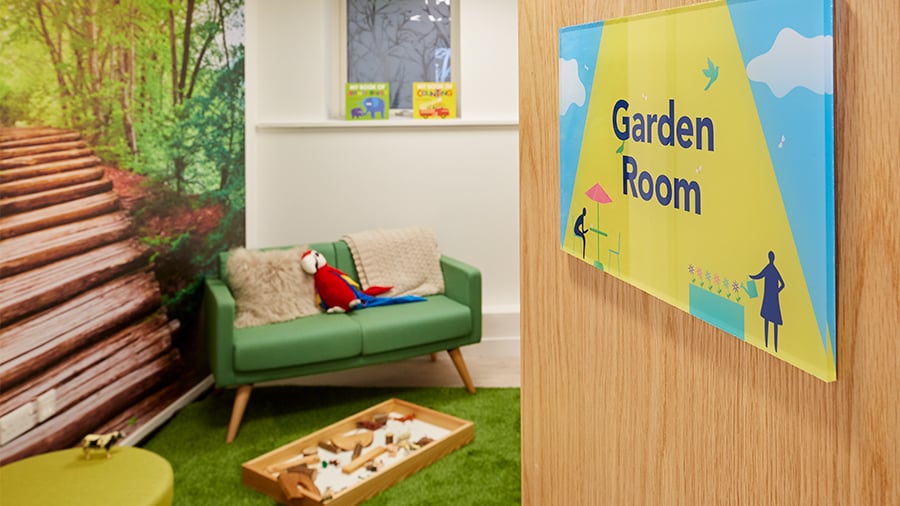
We believe every child should have the support they need after facing sexual abuse. Being a partner in The Lighthouse has shown us the difference a Child House can make for young people who've experienced abuse and we're pleased that funding for The Lighthouse in London has been extended to March 2022.
"Think it’s a great service dedicated to young people and their families. Should have more around the UK"
Parent in London
Given the success of The Lighthouse in London, we’ll advocate nationally for the benefits of this model and campaign to have new sites funded and built across the UK.
With support from government and commissioners, we can make the Child Houses model an integral part of the support and services available to children who’ve experienced abuse.
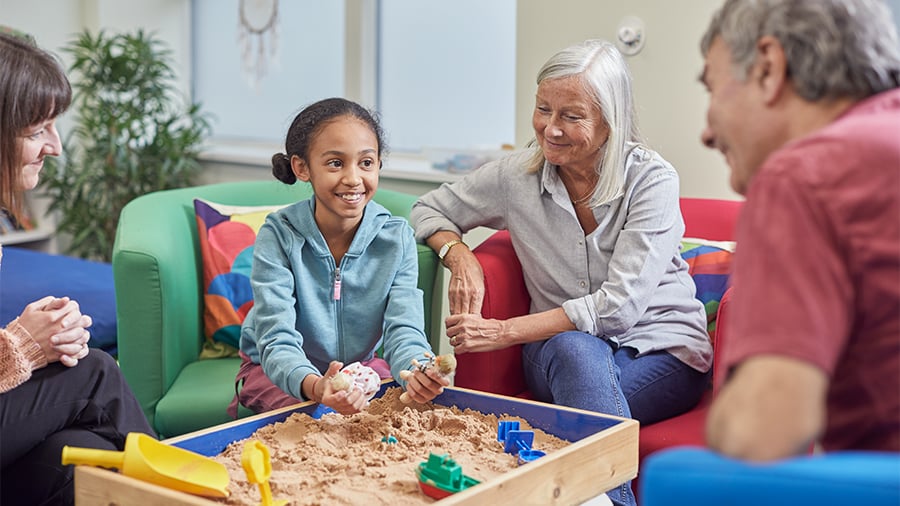
Thanks to the Home Office, The Mayor of London’s Office for Policing and Crime, NHS England, the Department for Education, charity partner Morgan Stanley (who raised over £1.5m) this multi-agency project was brought to life. The generous funding the project received helped to refurbish and transform the NSPCC’s service centre in North London.
£25 could pay for toys for children to use during therapeutic sessions to help explain how they’re feeling. Around 90% of our income is donated - we can only be here with your help.4
Report child sexual exploitation
To report sexual exploitation:
- call 999 if the child is at immediate risk or call 101 if you think a crime has been committed
- call Crimestoppers anonymously on 0800 555 111 or online
- call our Helpline on 0808 800 5000 - our dedicated child protection specialists will be able to advise and take any necessary action.
Support
For parents and carers
Finding out your child has been sexually exploited can be frightening and distressing. But there's help for you and your family.
Ivison Trust works with parents and carers of children who are, or at risk of, being sexually exploited. You can call them for confidential help and advice on 0113 240 3040 or fill in their online form.
Barnardo's can support both children and parents through their direct services across the UK.
For children and young people
We run therapeutic services for children who have experienced, or are at risk of, sexual exploitation and abuse:
- Hear and Now
- In Ctrl
- Letting the Future In
- Protect and Respect
Find out more about all our services for children, including how to get in touch with ones in your area.
Other organisations that can help include Barnardo's and The Children's Society. They run services for children and young people across the UK.
Children and young people can contact:
- Fearless to report crime anonymously
- Runaway helpline for young people thinking about running away or have left home
- Victim Support if they've experienced crime
- Report Remove if you need to remove nude images online.
How Childline can help
We understand how difficult it is for children to talk about sexual exploitation and abuse. Whether it's happening now or happened in the past, Childline can be contacted 24/7. Calls to 0800 1111 are free and confidential. Children can also contact Childline online.
Childline has information and advice for children and young people about:
Preventing child sexual exploitation
There are lots of ways to help prevent child sexual exploitation.
Teaching children and young people about healthy relationships and how to stay safe online can help prevent sexual abuse and exploitation. These foundations can be laid from a young age. Our PANTS rules are a simple way to teach younger children how to stay safe from abuse. Your child may have already had the talks in school, but it’s important to talk to them at home too. We have tips and advice on how to have difficult conversations.
It's also important to make sure children and young people know there are trusted adults, including outside home that they can speak to about their worries, such as school or Childline.
You can ask your child's school to book a free Speak out Stay safe assembly for primary school children. Our specially trained staff and volunteers hold assemblies and workshops, covering topics like bullying and abuse, but without using any scary words or adult language.
If you're worried about gangs, it can be difficult to know what to do to help protect young people. Whether a child is thinking about joining a gang, is already involved or want to leave, they need help and support. You can contact our Helpline for details of organisations near you that can give you support and advice.
Encourage transparency in what your children are doing online. You can keep gaming devices and computers and laptops with webcams in the living room or family spaces. Use parental controls and keep up-to-date on the apps and games children and young people are using.
We know parents and carers of d/Deaf and disabled children and young people can worry about keeping their children safe from abuse. Some children and young people may not be aware of the dangers of abuse. Or aren't able to let someone know they're not safe because it may be harder for them to show or tell someone.
We have a range of guides you can download to help children learn the PANTS rules without using any scary words. You can look at these together and talk about what PANTS means. We've also got tips and advice to help you answer some of the common questions children and young people ask.
For d/Deaf children and young people we have a video in British Sign Language (BSL) with subtitles to help you share the PANTS rules. Our video on contacting Childline using SignVideo is a useful tool to help you explain different types of abuse and give children and young people the knowledge of who they can contact if they're worried.
Help if you're worried about your behaviour
If you're worried about your behaviour, help is available.
If you are, or think you might, sexually exploit or abuse a child or young person, contact Stop it now!, a free helpline offering information, guidance and support.
- Call Stop it now!
People living in the UK and Ireland can call for free on 0808 1000 900 (Monday – Thursday 9am-9pm and Friday 9am-5pm). - Message online
Stop it now! have a secure messaging service available 24-hours a day.
You can also call us for information and advice on 0808 800 5000, email [email protected] or fill in our online form.
More support for you and your child
References
-
1. Goddard, A., Harewood, E. and Brennan, L., (2015) Review of pathway following sexual assault for children and young people in London. NHS England, The Havens, Kings College Hospital London.
-
2. (Khadr, S. et al. (2018). Mental and sexual health outcomes following sexual assault in adolescents: a prospective cohort study. The Lancet Child & Adolescent Health, 2(9), 654-665.) Baseline interviews (T0) were done less than 6 weeks after an assault to collect data on sociodemographic and assault. At T0, psychological symptom scores showed that 115 (88%) of 130 females were at risk for depressive disorder, 90 (71%) of 126 were at risk for anxiety disorders, and 116 (91%) of 128 were at risk for post-traumatic stress disorder, with symptoms largely persisting at T1. 68 (80%) of 85 females who had a diagnostic assessment at T1 had a psychiatric disorder, with multiple disorders in 47 (55%) of 85.
-
3. Harewood, E. (2021) The Lighthouse annual report 2019-2020. London: The Lighthouse https://www.thelighthouse-london.org.uk/wp-content/uploads/2021/04/Lighthouse-Annual-Report-2020-web-version.pdf The data analysed includes Excelicare records of children and young people aged 0–25 years old referred to the Lighthouse following disclosure or suspicion of child sexual abuse. The data relates to all 321 referrals and 198 initial assessments and onward support of children and young people living in the North Central London area who accessed the service between October 2019 and September 2020. Compared with the number of police reports for sexual offences in under 18 years olds, it can be seen that the number of Lighthouse referral rate ranges from 34 to 59% of the total number of sexual offences reported to the police in the borough in the same period (Oct 2019 – Sept 2020). This means the Lighthouse continues to receive referrals for approximately 1 in 2 children and young people in NCL who report sexual offences. 258 (80%) of referrals to the Lighthouse were accepted, allocated to a team and offered either an an initial assessment, consultation or an ABE
-
4. In 2019/20 our total income was £117.6 million. Of this total £93.5 million came from donations and legacies and a further £9.0 million came from activities undertaken for the purpose of raising funds (like dinners and balls, auctions and challenge events). This gives a total of £102.5 million from our supporters, or 87% of all income.


